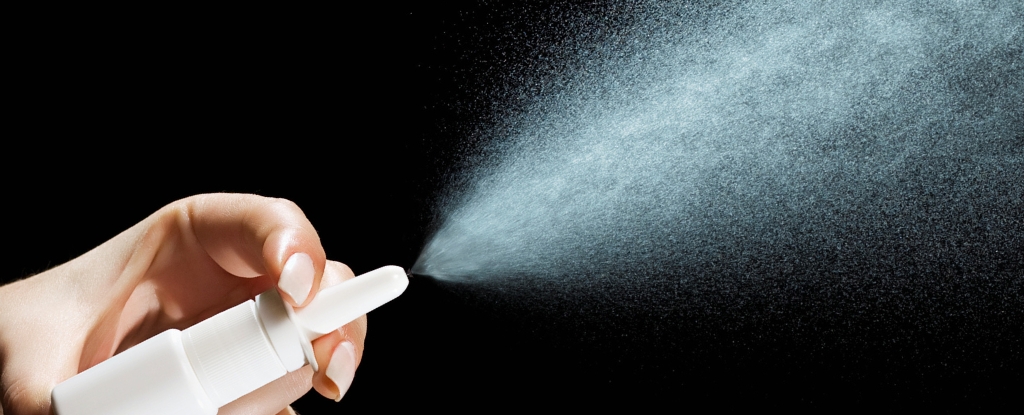We may have a new way of protecting against COVID-19 that checks almost all the boxes: It’s effective, it’s affordable, it’s easy to apply, it’s already approved as safe for public use, it’s available without prescription… and it’s called azelastine.
This nasal spray has been available over the counter for decades now, under a variety of brand names, in over 70 countries. It’s used to treat several allergies, including hay fever, and a new trial into its effectiveness at preventing COVID-19 was launched after promising results in lab tests and people with a SARS-CoV-2 infection.
The eight-week trial was led by a team from Saarland University in Germany. The researchers divided 450 participants into two groups: one group used an azelastine nasal spray three times a day, while the other group followed the same routine with a placebo spray.
Related: COVID Can Cause Alzheimer’s-Like Plaques in Eyes And Brain
“During the observation period, 2.2 percent of the participants in the azelastine group became infected with SARS-CoV-2,” says pneumologist Robert Bals of Saarland University. “In the placebo group, it was 6.7 percent – three times as many.”
More positive data from the trial: the azelastine group also showed fewer symptomatic infections (that’s confirmed COVID-19 cases also accompanied by symptoms such as a cough), a lower number of respiratory infections in general, and fewer cases of rhinovirus (a common cold virus).
That last finding was somewhat unexpected, because rhinovirus is notoriously difficult to prevent and treat. The suggestion is that this treatment could be effective against other respiratory infections, too, although that wasn’t the main thrust of the research.
While coronavirus infection rates have dropped significantly since the first few years of the pandemic, the virus hasn’t gone away. It remains a concern for high-risk groups and travelers, for example, and while vaccines are widely available, they’re not always effective for everyone.
“Azelastine nasal spray could provide an additional easily accessible prophylactic to complement existing protective measures, especially for vulnerable groups, during periods of high infection rates, or before traveling,” says Bals.
These are promising results, but azelastine can’t be marketed as being able to stop COVID-19 yet, even though it already has approval as an anti-allergen. Further trials need to be carried out across larger, more diverse populations – such as the vulnerable groups mentioned by the researchers.
This particular study didn’t investigate why the drug has this protective effect against COVID-19, but past research suggests multiple mechanisms are at play. Of course, that it’s a nasal spray is a good start; most SARS-CoV-2 infections take the nasal route into the body.
Existing evidence also shows that azelastine is one of several drugs that can stop SARS-CoV-2 from replicating itself, halting the virus in its tracks. However it works, though, the drug is clearly effective at preventing COVID-19, and we can expect to hear more about this as a potential treatment in the future.
“Our results highlight the need for larger, multicenter trials to continue exploring the use of azelastine nasal sprays as an on-demand preventive treatment, and to examine its potential effectiveness against other respiratory pathogens,” says Bals.
The research has been published in JAMA Internal Medicine.
